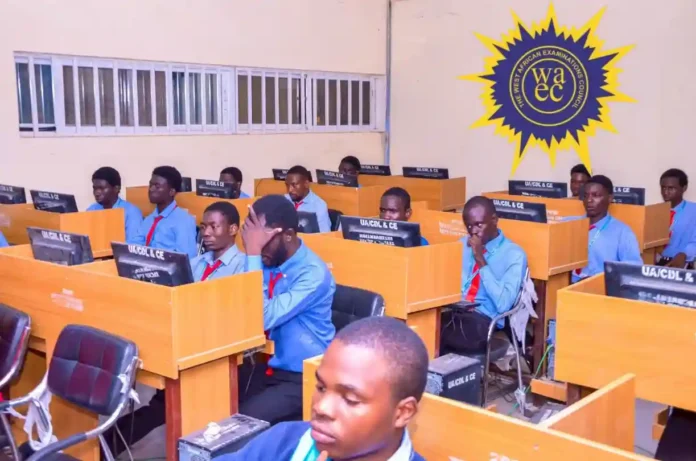The House of Representatives has asked the Federal Ministry of Education and the West African Examinations Council to suspend the planned introduction of Computer-Based Testing for the 2026 school examinations. Lawmakers raised concerns that schools across the country, especially in rural communities, lack the infrastructure, electricity, and manpower needed to support a complete transition to a digital examination system.
WAEC, backed by the Federal Government, had earlier announced that it would begin conducting the 2026 May/June examination using computers after running a partial CBT rollout for private candidates in 2024. But lawmakers disagreed, saying the rollout would put millions of students at risk of failure and emotional distress if done without proper preparation.
The House urged the Education Ministry and state governments to include in their 2026, 2027, 2028, and 2029 budgets the recruitment of computer teachers, construction of computer halls with internet facilities, provision of standby generators, and comprehensive assessment of private schools’ readiness. Lawmakers recommended that full implementation should be shifted to 2030, giving schools enough time to build digital infrastructure.
The resolution followed a motion of urgent public importance sponsored by Rep. Kelechi Wogu, titled “Need for Intervention to Avert the Pending Massive Failure of Candidates Intending to Write the 2026 WAEC Examination Using Computer-Based Testing (CBT), Capable of Causing Depression and Deaths of Students,” as reported by Vanguard.
Leading the debate, Rep. Wogu reminded the House that WAEC examinations determine students’ eligibility for higher education, with tertiary institutions requiring at least five credits, including English Language and Mathematics. He also recalled how the 2025 WAEC result portal was temporarily shut down due to what he described as “technical glitches,” leaving many students distressed.
He expressed concern that, despite resistance from the Nigeria Union of Teachers and heads of schools, “the Ministry of Education has insisted on introducing CBT for the 2026 examination,” even though rural areas host more than 70 per cent of school candidates. According to him, “computer-based examinations require fully equipped halls with functional computers, internet access, and constant electricity — either from the national grid or standby generators.”
Wogu noted that about 25,500 schools nationwide are expected to present candidates for the 2026 examination, which will run from March to July. Most of these schools, he said, do not have functional computers or qualified computer teachers. He added that unlike JAMB, WAEC candidates sit for at least nine subjects, making a rushed transition unrealistic.
He warned that forcing the policy could lead to widespread failure, depression, frustration, and rising social problems among young people. He recommended at least three years of preparation before a proper rollout in the 2029–2030 academic session.
The House unanimously adopted the motion and directed its Committees on Basic Examination Bodies, Digital and Information Technology, Basic Education and Services, and Labour, Employment and Productivity to engage with key stakeholders and report back within four weeks.
In June, Nigeria Startup News had warned in an opinion piece titled “Nigeria’s Rush to WAEC, NECO CBT Will Be a Tech Disaster” that the country was not ready for a full-scale digital exam system.

